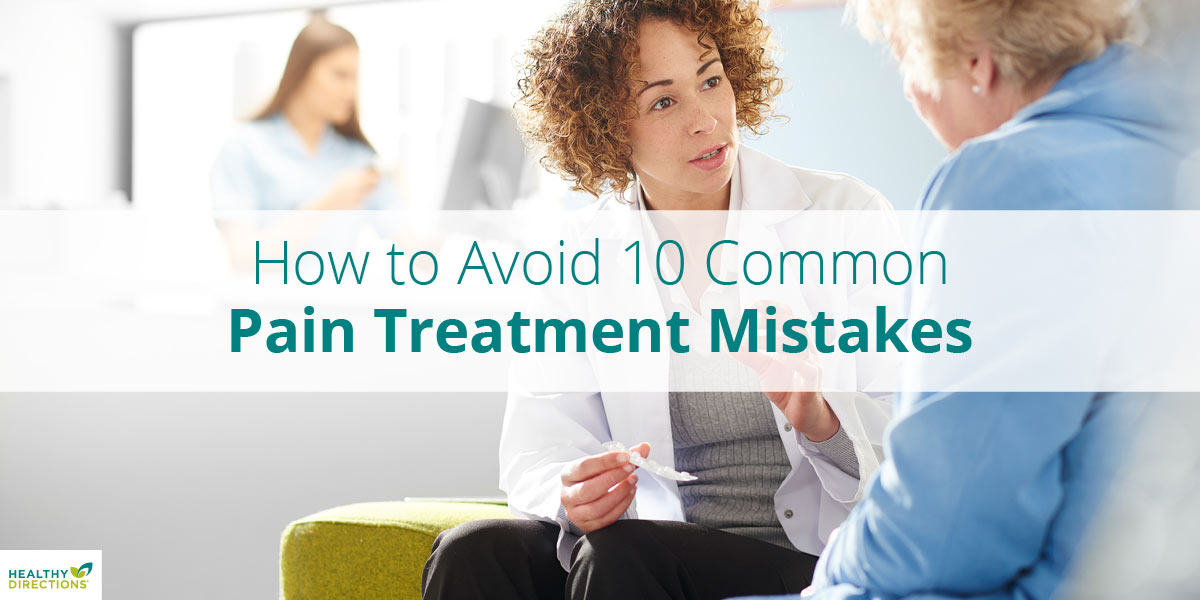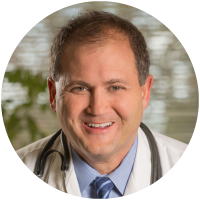
Typically, our main source of information about many medical conditions such as high blood pressure, high cholesterol or diabetes—is our physician or healthcare professional.
People come to pain doctors with a lot of their own ideas that are not necessarily medically sound. Here are 10 of the most common mistakes people make when thinking about pain and how to avoid them:
1. Waiting until the pain gets bad before taking a pain reliever. Pain relievers actually can work better if you take them before you have pain or before the pain gets bad. For example, if you ever have dental surgery, the dentist will advise you to take your pain medicine before the Novocain wears off. Treating pain early can make it possible to manage the pain with less medication.
2. Avoiding taking pain medicine because it will stop working for them. Some people have the fear that if they take a pain medicine today, it won’t work for them tomorrow when they might need it even more. You will not make yourself immune to pain medicine.
3. Not taking pain medicine as prescribed, after surgery. Studies show that taking pain medicine following surgery can allow you to get out of bed, start walking and even begin rehabilitation programs sooner. Do not think you are being “strong” by enduring the pain after surgery; it’s counterproductive.
4. Thinking that being in pain is a sign of weakness or a character flaw. Not true! Pain is a normal physiologic response to stimuli. Your doctor will not think less of you if you report your pain honestly.
5. Not communicating clearly with their doctors and nurses about their pain. Studies show that observers—even when they're doctors and nurses—do not always gauge pain accurately by looking at you. In fact, clinicians are likely to underestimate pain. So do not assume that your doctor “understands” your pain levels unless you tell him or her.
6. Not telling your doctor and pharmacist all the other drugs you take, including over-the-counter drugs and natural supplements. Drug interactions are much more common than most people think and can cause severe problems.
7. Assuming non-steroidal anti-inflammatory drugs (NSAIDs) are safe. For example, say you take low-dose aspirin for your heart. You should not take a NSAID unless you discuss it with your doctor first because it can interfere with the aspirin. This includes over-the-counter NSAIDs, like ibuprofen.
8. Not using natural pain remedies, like heating pads, cold packs, topical pain creams, rest, exercise, music therapy, and relaxation. As a pain doctor, I treat people with very complex and very severe pain, but I have rarely encountered a patient that did not get at least some degree of relief from natural remedies. For patients with mild-to-moderate pain, natural remedies may be all they need.
9. Not understanding your specific type of pain and the unique treatment it requires. One pain reliever may work on your migraine but not help your back. Most people do not realize that acute pain—like the pain that occurs if you sprain your ankle—is different from chronic or long-term pain—like a backache that never goes away. One way to help prevent chronic pain from starting is to treat acute pain so that it cannot “take root” and become chronic, persistent pain.
10. Not realizing that pain is not always equivalent to its cause Sometimes a mild condition can cause severe pain (like hitting your funny bone or stubbing your toe) while a serious condition may cause you only mild pain or no pain at all. Some people delay treatment for pain, fearing that it is the symptom of an underlying disease. That may not be the case at all.
While you should treat pain—for your own comfort and health—you should also take the lowest dose of pain relievers for the shortest amount of time. This means that you should work closely with your healthcare team or seek a pain specialist. Try to work out a pain plan so that you know roughly how long your pain should last, how it should be treated, and how or when to stop your medications.
For some pain medications, you may have to taper down rather than just stop abruptly. Natural remedies should be incorporated into your plan and can easily be continued once the prescription drugs are no longer needed.


